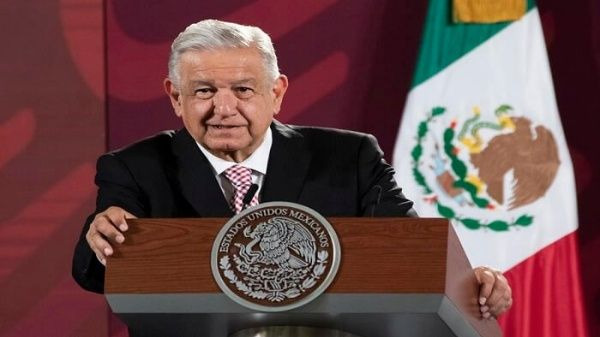
AMLO read excerpts from Chapter 8 of the T-MEC, where it is stressed that Mexico "has full control" over its energy resources. | Photo: Government of Mexico
Mexico City, July 29 (RHC)-- The president of Mexico, Andrés Manuel López Obrador (AMLO), affired that his country does not accept to give up its sovereignty for the Treaty between Mexico, the United States (US) and Canada, in view of the recent claims of both countries for the reform of the Mexican energy policy to strengthen the public electricity company.
"Even if it is the most important market in the world. If having access to that market implies ceding sovereignty, we do not accept it. We are not going to surrender our independence to any foreign government," warned the Mexican president during his morning press conference.
The dignitary made reference in his speech to the eighth chapter of the T-MEC, whose wording was controversial and caused talks to be halted for almost 15 days, because AMLO opposed "what had already been negotiated by officials of the previous government."
In this sense, the chapter stresses that Mexico "has full control" over its energy resources, as well as that "all hydrocarbons in the subsoil of the national territory" are the absolute and indisputable property of the country.
AMLO made a public reading of some of the paragraphs contemplated in said chapter of the trade agreement, and called to reflect on the wealth of gas and oil present in the Mexican subsoil.
The head of state stated his intention to send a letter to his U.S. counterpart, Joe Biden, to express his disagreement with the request for consultation issued last week by the White House legal representative for the T-MEC, Katherine Tai.
"How are we going to accept that? And I'm sure President Biden doesn't even know about it. I feel like sending him a letter to say, 'What's going on? Maybe you are not informed, because you have always told me, and I believe you, that our relationship is going to be on an equal footing," said López Obrador.
However, López Obrador reaffirmed that it will not be necessary to cancel the T-MEC, alluding to the change of times and the convenience of maintaining the agreement for all parties, especially for Mexico and the US.
"And why won't there be a rupture? Not only because we are right, but also because it is not convenient for us and it is not only Mexico. It is not convenient for the U.S. It is not the time it used to be," he assured.
The request presented by the U.S. side of the agreement has the support of Canada, according to a statement issued by the spokeswoman of the Canadian Department of International Trade, Alice Hansen, which was disseminated by international press agencies.
Both nations accuse the Aztec nation of not complying with the competition laws established by the T-MEC, in view of the reformulation of the Mexican Electricity Industry Law to benefit the public electricity company over foreign companies.
The T-MEC entered into force on July 1, 2020, and is the result of a renegotiation between Mexico, the U.S. and Canada of the former North Atlantic Free Trade Agreement (NAFTA), which ran from 1994 to June 31, 2020. The negotiation process for the T-MEC began in 2017, and was signed in December 2019.

